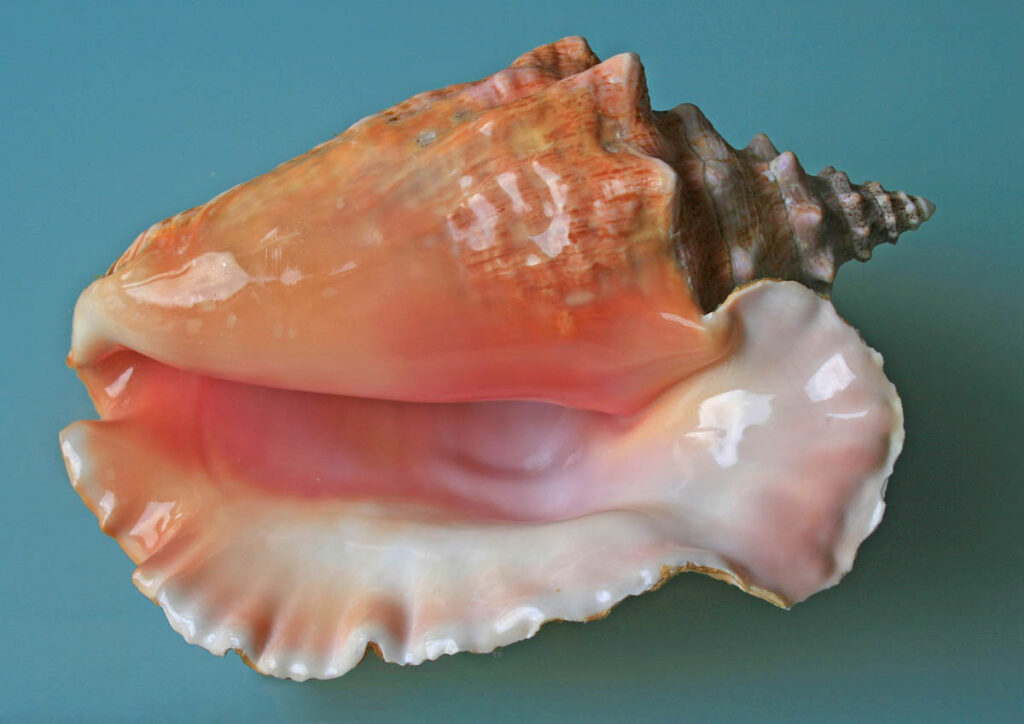For generations, Bahamian families have fished for conch. Conch fishing is their way of life, and it is an important part of the island nation’s economy and tourism industry. Conch is eaten in the Bahamas fried, stewed, smoked, and raw. A fisherman could once walk out from the beach and pick them up from the water. Because of overfishing, the fisherman must now venture much further from shore to catch any. Scientists, international conservationists, and government officials have warned that the conch population is dwindling due to overfishing, and that a food essential to Bahamians’ diet and identity could become commercially unviable in as little as six years.
Conch is the common name for a variety of medium-to-large-sized sea snails. Conch shells have a prominent siphonal canal and a high spire (in other words, the shell comes to a noticeable point at both ends). A conch is commonly identified in North America as a queen conch, which is native to the waters of the Gulf of Mexico and the Caribbean. Queen conches are valuable as seafood and as fish bait. A rule has been proposed in the United States to list the conservation status of the queen conch as threatened.
Eighty percent of the international trade in queen conch meat is imported into the United States. The Florida Keys were a major source of queen conches until the 1970s, but the conches are now scarce, and all harvesting in Florida waters is prohibited, and those who have harvested them have been prosecuted.
Wind instruments can be made from conch shells. They are made by drilling a hole near the apex of the shell’s spire and blowing into it like a trumpet or a blowing horn. A mouthpiece is sometimes used, but some shell trumpets are blown without one. Pitch can be changed by moving one’s hand into and out of the aperture; the deeper the hand, the lower the note.
Clean queen conch shells or polished fragments are sold as souvenirs or in jewelry in some Caribbean countries, such as Jamaica and the Bahamas. In response to a CITES recommendation in 2003, some Caribbean countries have prohibited the export of queen conch shells. CITES has also requested that all countries prohibit the import of these shells from countries that are not following CITES recommendations for fishery management. Several countries have closed their queen conch fisheries. Conch shells or fragments brought home by tourists from noncomplying countries may be confiscated during customs clearance upon return to the tourist’s home country. Conch shells are the ninth most seized import in the United Kingdom.
The United States is considering listing conch under the Endangered Species Act, which could stop imports into the country, which is the world’s largest importer. Reducing the fishery by half over the next few years, is one way to potentially prevent conch loss but will certainly affect the economy of the Bahamas.
The Conch Festival is held each November in the Turks and Caicos Islands at the Three Queens Bar/Restaurant in Blue Hills. Local chefs compete to create the best and most unique conch dishes, which are then judged by international chefs.







